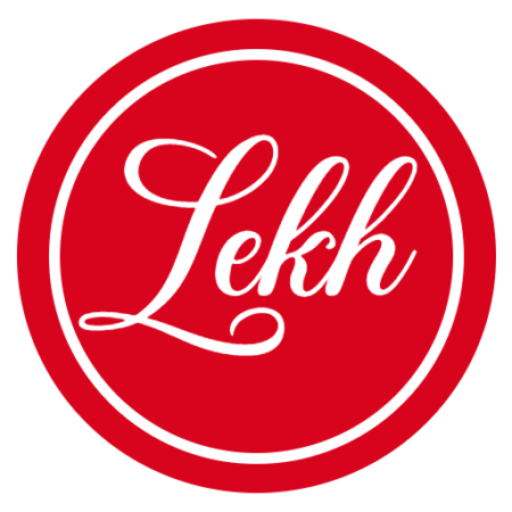What is Future of SEO? Artificial Intelligence (AI) is revolutionizing the digital landscape. The AI technology is largely dependent on data. It accumulates data from various sources and learns from it to make predictions.
Is AI the Future of SEO? Exploring the Impact of Artificial Intelligence.
The technology consists of machine learning algorithms, which are designed to solve complex problems that are impossible to solve using traditional algorithms. One of the subsets of machine learning algorithms is neural networks. These networks are modeled after the structure and function of the human brain. They are used to recognize complex data and patterns, and make predictions based on that data. Neural networks have many applications, including speech recognition, natural language processing, and predictive analysis.

Rank Brain Algorithm:
The impact of AI is vast, and search engine algorithms are no exception. With the rise of AI, search engine algorithms have evolved since 2015. The main goal of AI algorithm was to give more importance to user experience. Google's RankBrain algorithm, the first AI-based search engine algorithm, has made a significant impact on the search engine industry. By using neural networks, RankBrain understands the content and meaning of words in a search query, enabling it to provide highly relevant search results.
RankBrain has helped improve the accuracy and relevance of search results by analyzing and understanding the meaning behind the keywords in a search query. With over a hundred search engine ranking factors, RankBrain matches the query with relevant data stored in its indexed webpages database. This process ensures that users receive the most accurate and relevant results possible.
Personalization is a crucial factor in search engine algorithms, and RankBrain excels in this area. By analyzing the user's location, search history, and device type, RankBrain personalizes search results to deliver the best possible user experience. This personalization ensures that users receive results that are highly relevant to their specific search query.
After Implementing RankBrain Google notices that there are some complex search queries that requires deeper understanding of the language. So working behind these issues Google introduces new Algorithm that was BERT. The main motive of launching BERT Algorithm was to deliver more relevant results to users for complex queries. Website Optimization was much tricky in starting.
BERT Algorithm
BERT, which stands for Bidirectional Encoder Representations from Transformers, was introduced in 2019 as a deep learning model aimed at improving Google search results. The model is based on the "Transformers" architecture, and its primary objective is to understand the context and meaning of words in a search query. BERT is trained to find the missing word in a sentence by using the surrounding words as clues.
This helps it understand the relationship between words and recognize language patterns more accurately. BERT's design enables it to handle long-tail and conversational search queries more effectively than previous models. When a user enters a query, BERT analyzes the meaning, keyword intent in the query and their relationships to deliver more accurate and relevant results.
This has significantly improved the accuracy of Google's search results, making it easier for users to find what they are looking for. BERT is a major advancement in the field of natural language processing and has revolutionized the way search engines understand and interpret user queries.

To optimize your website for RankBrain and BERT Algorithm, here are some key points to keep in mind
- Focus on Quality Content: The primary focus should be on the user's perspective. Provide content that answers users' queries by targeting long-tail and LSI keywords. RankBrain and BERT are designed to focus on the context, meaning, and intent of search queries.
- Use Natural Language: Conduct keyword research to understand how people ask questions on Google, and create content that sounds natural and conversational to users.
- Improve Page Speed: Core web vitals are critical when optimizing website speed. Focus on each element of core web vitals and optimize them for both mobile and desktop.
- Mobile Optimization: Over 60% of searches on Google are performed on mobile devices. Optimize your webpage speed, create responsive designs, use mobile-friendly content, and optimize images.
- Structured Data: Implement structured data markup language on your website. Use organization schema for your organization on the homepage, product schema for your ecommerce website, and breadcrumb schema for category and product pages alignment. This will help Google correctly and properly index your pages and provide more relevant results to users.
- Use Natural Backlinks: Focus on acquiring natural backlinks from high-authority websites and drive traffic from social media sites. You can use email outreach for guest post websites and also follow the same approach for niche edits backlinks (placing your link on already ranked content).
The implementation of RankBrain and BERT algorithms by Google aimed to improve the accuracy, relevance, and quality of search results for users. Over the years, Google has focused on the relevance, quality, and value of content, and all search engine ranking updates have centered on improving the user experience. Thus, optimizing a website for users should result in better performance and conversions. By prioritizing the user perspective, rather than just the bots' perspective, we can perform well with minimal or no impact from AI on our websites.
AI tools like Chat GPT have been trending in many domains, making content writing and coding easier. Some fear losing their jobs in SEO and digital marketing due to these AI tools. However, it's important to remember that these tools are based on data and machine learning algorithms, making them dependent on data. We must focus on creating new and creative things, rather than relying solely on these tools. Those who solely rely on AI tools will suffer, but using these tools in conjunction with our creativity will yield the best results.











